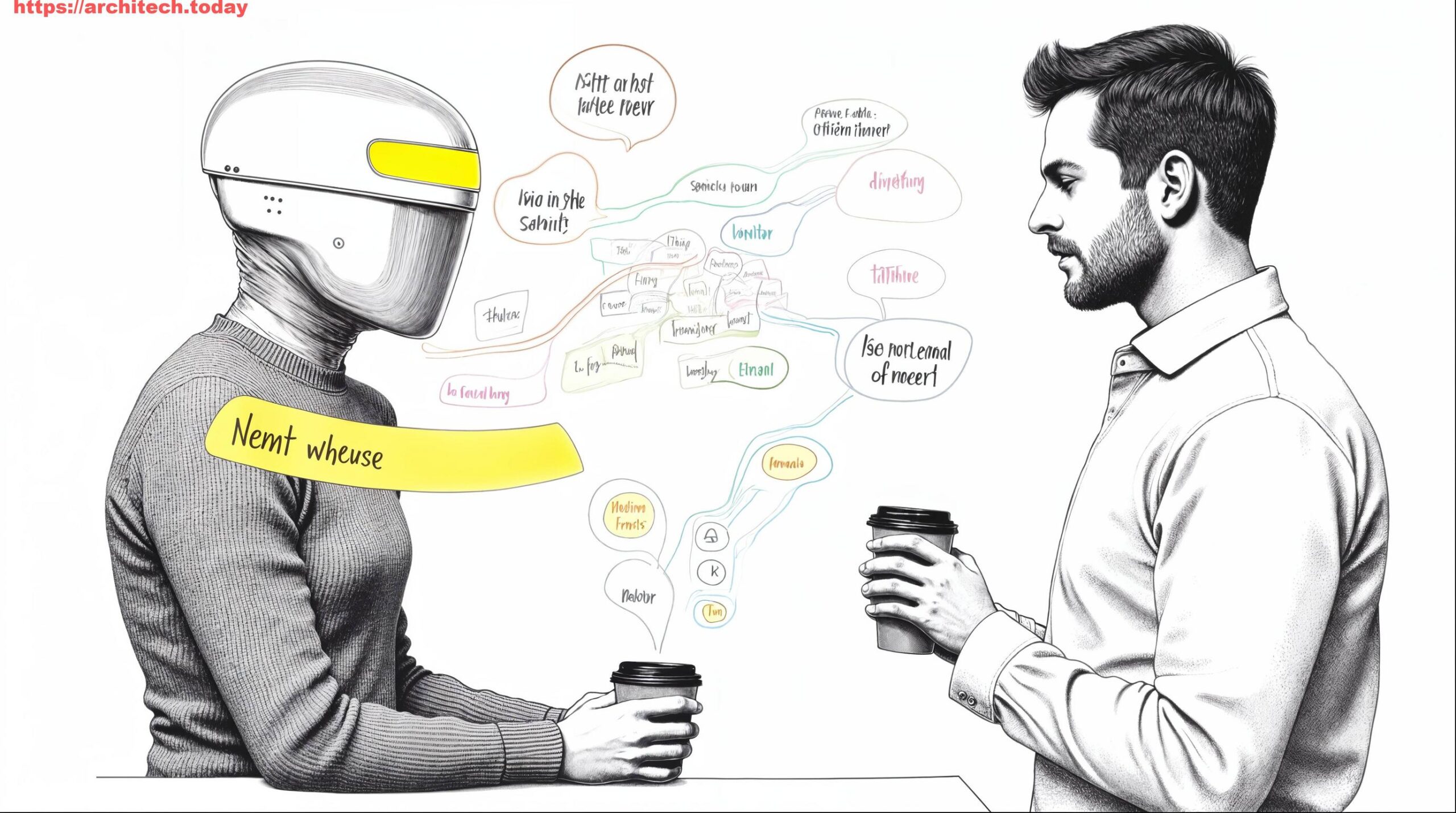Beyond the Gantt Chart: How AI is Redefining Project Management for the Modern PM
“Imagine it’s 2025, and your AI assistant has already outlined your project plan over coffee, flagged potential risks for the quarter, and optimized resource allocation before you even opened your laptop.” This isn’t a scene from a sci-fi blockbuster; it’s the rapidly unfolding reality for project managers and PMO leads leveraging Artificial Intelligence. Project management has always been about orchestrating complexity, delivering value, and navigating the unpredictable. For decades, project professionals have juggled countless variables, from meticulous scheduling and resource allocation to relentless risk assessment and stakeholder communication. It’s a role demanding a unique blend of strategic foresight, meticulous attention to detail, and exceptional people skills. But what if a significant portion of those administrative headaches could simply… vanish? What if the “mundane” tasks that consume precious hours were handled with tireless efficiency, allowing you to amplify your strategic impact and truly shine in your role?
We’re standing at the precipice of a seismic shift, where project management is no longer just about “people and plans,” but about “people, plans, and algorithms.” Far from replacing the indispensable human element, AI is emerging as your most tireless project coordinator, a digital co-pilot that never sleeps, tirelessly crunching data, identifying patterns, and offering insights that were once the exclusive domain of intuition and experience. This article will explore how AI is systematically transforming the landscape of project management, from automating daily administrative burdens like progress reports and timeline adjustments to providing advanced support in risk analysis and resource optimization. We’ll delve into concrete examples, discuss the profound benefits for project managers and PMO leads, and shed light on how you can leverage these revolutionary tools to not only streamline operations but also elevate your strategic leadership, ensuring better project outcomes and a more focused, fulfilling role. Prepare to discover how AI frees you from the tyranny of the urgent, allowing you to truly focus on the creative, human, and strategic dimensions of project success.
1. AI-Powered Task Automation: Liberating Your Day from the Mundane Grind
For project managers, the daily grind often involves a relentless barrage of administrative tasks: updating status reports, sending reminders, scheduling meetings, and meticulously tracking progress. While undeniably essential, these routine activities can consume a significant portion of a PM’s valuable time, diverting precious cognitive energy from high-level strategic thinking, critical problem-solving, and fostering team cohesion. This is precisely where AI truly shines, acting as your indefatigable digital assistant, transforming what was once a time sink into a streamlined, automated process. Think of AI as your tireless project coordinator who never sleeps, handling the repetitive, predictable elements of your workload with unparalleled efficiency and precision.
Imagine an AI assistant that automatically compiles comprehensive progress reports, seamlessly pulling and consolidating data from disparate sources like your task management systems (e.g., Jira, Asana), communication channels (e.g., Slack, Teams), and even version control repositories. No more chasing down individual team members for updates or spending hours painstakingly formatting data into a presentable report for stakeholders. This intelligent AI can proactively identify overdue tasks, flag potential bottlenecks based on intricate dependencies, and even draft initial communications to relevant stakeholders or team members regarding critical updates. For instance, an AI-powered scheduling tool can not only suggest optimal meeting times based on every team member’s real-time calendar availability and diverse time zones but also dynamically adjust project timelines when individual tasks slip or external dependencies shift. It recalculates downstream impacts, automatically updates all relevant stakeholders, and sends proactive alerts, minimizing the ripple effect of delays and keeping the project on a continuously optimized path.
Beyond simple reporting and scheduling, AI is already demonstrating remarkable prowess in managing vast quantities of project documentation. Utilizing advanced Natural Language Processing (NLP) capabilities, AI can autonomously extract key information from project charters, detailed requirement documents, comprehensive meeting minutes, and even unstructured email conversations. It can categorize this information intelligently, make it instantly searchable, and crucially, identify inconsistencies or gaps that might otherwise go unnoticed. For a PMO lead managing a complex portfolio of interconnected projects, this translates to a centralized, always-up-to-date, and intelligently cross-referenced repository of critical project data, accessible instantly for strategic oversight and compliance. Furthermore, AI chatbots are increasingly being deployed to handle routine queries from team members regarding task status, project guidelines, access to resources, or even company policies, providing instant, accurate answers and significantly reducing interruptions for project managers. This not only boosts individual team member productivity by providing immediate resolutions but also allows PMs to dedicate their invaluable cognitive energy to complex problem-solving, fostering team growth, and nurturing crucial stakeholder relationships. The benefits are clear and profound: by offloading the repetitive and time-consuming tasks to AI, project managers are empowered to reclaim their time, shift their focus from reactive firefighting to proactive strategy, and ultimately enhance their capacity for leadership, innovation, and truly impactful decision-making. This isn’t about AI replacing human effort; it’s about amplifying it exponentially, allowing PMs to operate at the very top of their game.
2. Predictive Risk Management: Seeing Around Corners with AI-Powered Foresight
One of the most critical and high-stakes responsibilities of a project manager is anticipating and mitigating risks. Traditional risk management methodologies often rely heavily on historical data, expert judgment, and qualitative assessments. While these approaches have served us well for decades, they can be inherently prone to human bias, limited by the scope of past experience, or simply too slow to react to the rapidly evolving, dynamic landscapes of modern projects. In a world where even minor missteps can lead to significant delays, substantial budget overruns, or even complete project failure, the ability to predict potential pitfalls before they escalate into full-blown crises is not just an advantage—it’s a superpower. AI, with its unparalleled capacity to analyze colossal datasets and identify subtle, often hidden patterns that elude human perception, is precisely the engine that provides this predictive capability, allowing project managers and PMO leads to “see around corners” with unprecedented clarity.
AI-powered predictive analytics tools delve deep into every available piece of project data: past project performance metrics, team velocity, individual resource availability and historical output, external market indicators, current economic trends, and even nuanced sentiment analysis gleaned from internal communication channels. By applying sophisticated machine learning algorithms, these tools can forecast potential project delays or budget overruns with remarkable accuracy. For example, an AI might analyze a project’s current burn rate against aggregated historical data from thousands of similar projects, cross-referencing it with upcoming dependencies, known vendor performance, and resource commitments, to predict a potential cost overrun or critical path delay three sprints ahead. This early warning system is incredibly invaluable, providing project managers with the crucial lead time necessary to proactively implement corrective actions, strategically reallocate resources, renegotiate scope with stakeholders, or adjust project milestones, rather than being caught off guard by an emerging crisis. Credible studies and early adopters indicate that AI can predict project risk with significantly higher accuracy rates than traditional, manually intensive methods, often identifying latent risks that human analysis might miss entirely due to cognitive load, confirmation bias, or simply the sheer volume of data involved.
Consider a scenario where a project manager is overseeing a highly complex, multi-year software development initiative with numerous external integrations. An advanced AI model, robustly trained on thousands of similar enterprise-level projects across various industries, could identify that a particular combination of highly interdependent technical modules, new technology adoption, and reliance on an untested third-party API often leads to significant delays in the final integration and user acceptance testing phases. It might then immediately flag this specific project for increased scrutiny in those areas, recommending proactive measures such as allocating additional buffer time for integration, bringing in specialized testing resources early, or initiating parallel development streams for critical path components. For PMO leads managing a diverse and extensive portfolio, AI can provide a consolidated, dynamic “risk dashboard,” instantly highlighting high-risk projects across the entire organization, allowing for rapid, strategic intervention and targeted resource deployment to avert enterprise-level disruptions. This isn’t just about identifying risks; it’s about quantifying their probability and potential impact, understanding their root causes, and providing actionable, data-driven insights for precise mitigation strategies. By leveraging AI for predictive risk management, project managers transition from reactive problem-solvers to proactive, visionary strategists, significantly bolstering project success rates and enhancing their reputation for foresight, control, and ultimately, value delivery. It’s like having a hyper-intelligent, data-driven crystal ball, giving you the clarity and confidence to navigate uncertainty with unparalleled precision.
3. Smarter Resource Optimization: The Right People, the Right Time, Every Time
Resource management is consistently cited as one of the most challenging, yet critically important, aspects of project management. Ensuring that the right people with the right skills are available at the precisely right time, while simultaneously managing individual workloads, preventing burnout, fostering skill development, and maximizing overall efficiency across multiple concurrent projects, is a delicate and often precarious balancing act. Traditional methods, frequently relying on static spreadsheets, manual allocation processes, and limited visibility into real-time capacity, are notoriously inefficient and highly prone to human error. This often leads to chronic over-utilization of some valuable team members, while others remain under-utilized, ultimately impacting project timelines, escalating budgets, and leading to team dissatisfaction. This is precisely where AI offers a truly transformative solution, bringing unprecedented intelligence, dynamism, and fairness to resource optimization.
AI-powered resource management tools move far beyond simple availability tracking. They leverage vast quantities of real-time data on individual team member skills (both declared and inferred from past project performance), experience levels, current workload, historical performance metrics, individual preferences, and even their projected availability based on upcoming vacations or training. Using this rich data, AI can suggest optimal assignments for tasks and projects. Imagine an AI analyzing a new project’s detailed requirements, identifying the precise skill sets needed (e.g., a senior Python developer with specific experience in scalable microservices architecture, a UX designer proficient in Figma and accessibility standards, a data analyst with expertise in specific cloud platforms), and then intelligently cross-referencing that against the entire talent pool to recommend the absolute best-fit individuals. This isn’t merely about who is available; it’s about identifying who is most effective and most likely to succeed for a given task, considering their past success rates, learning curves, and critically, their current capacity to take on new work without risking burnout or compromising quality.
Furthermore, AI can dynamically adjust resource allocations in real-time in response to rapidly changing project conditions. If a critical team member unexpectedly becomes unavailable due to illness, or if a project sprint falls significantly behind schedule, an AI system can instantly re-evaluate the entire resource landscape across the organization, proactively proposing alternative assignments, highlighting immediate skill gaps that need to be addressed, or recommending strategic cross-training opportunities to build future capacity. This proactive, intelligent reallocation minimizes disruption, ensures continuity of effort, and prevents project stalemates. For PMO leads, AI provides an invaluable holistic view of resource utilization across the entire organization’s portfolio, instantly identifying critical talent bottlenecks, looming skill shortages, and untapped opportunities for optimizing resource pools. It can precisely forecast future resource needs based on the anticipated project pipeline and strategic business objectives, allowing for more strategic and timely hiring initiatives, targeted training programs, or even the cultivation of external talent pools. For instance, if the AI predicts a surge in demand for specialized cybersecurity experts in the next two quarters based on anticipated project starts, the PMO can proactively initiate recruitment drives, internal upskilling programs, or forge partnerships with external consultants. This level of granular, data-driven insight transforms resource management from a reactive, manual scramble into a sophisticated strategic advantage, ensuring that human capital is deployed maximally effectively, preventing the “dial-up modem in a 5G world” scenario of outdated, inefficient manual resource planning. It empowers project managers to consistently build and lead high-performing, well-balanced teams, fostering both individual well-being and collective project success.
4. Enhanced Team Communication & Collaboration: Orchestrating Harmony with AI
Effective and transparent communication is the undeniable lifeblood of any successful project. In today’s complex, often distributed project environments, misunderstandings, delays in critical information dissemination, or simply being overwhelmed by the sheer volume of communications can quickly derail even the most meticulously planned initiatives. Project managers often find themselves spending a significant portion of their day facilitating communication, ensuring clarity, translating technical jargon, and skillfully resolving conflicts – a profoundly human-intensive process that can be mentally exhausting. While AI cannot, and should not, replace the intricate nuances of human interaction, empathy, and relationship building, it can profoundly enhance and streamline team communication and collaboration, ensuring that vital information flows efficiently, relevant insights are highlighted, and teams remain consistently connected, aligned, and productive.
AI’s sophisticated capabilities in Natural Language Processing (NLP) are particularly impactful here, revolutionizing how teams interact and share information. Imagine AI chatbots that seamlessly integrate directly with your team’s existing communication platforms (e.g., Slack, Microsoft Teams, Jira Service Desk, Confluence). These intelligent chatbots can serve multiple, invaluable purposes:
- Instant Updates & Information Retrieval: Team members can simply query the bot for the latest task status, crucial project deadlines, upcoming meeting schedules, or even access to specific documents, receiving immediate, accurate information without needing to interrupt a project manager or search through countless files.
- Automated Meeting Summaries & Action Item Extraction: AI can leverage speech-to-text technology to transcribe meeting discussions in real-time, identify key decisions made, synthesize discussions into concise summaries, and critically, automatically extract actionable items, assigning them to relevant team members with precise deadlines. This not only saves immense time in post-meeting follow-up but also ensures nothing falls through the cracks, transforming lengthy discussions into clear, actionable summaries.
- Proactive Sentiment Analysis & Early Conflict Detection: More advanced AI tools can analyze the sentiment within team communications (e.g., messages, emails, forum posts), identifying subtle indicators of frustration, escalating conflict, or declining morale. While this requires careful ethical consideration, privacy safeguards, and, crucially, human oversight, it can provide project managers with invaluable early warnings about shifts in team dynamics, allowing them to intervene proactively to address issues before they escalate into significant problems, fostering a healthier team environment.
- Intelligent Knowledge Management & Discovery: AI can intelligently index, categorize, and retrieve vast amounts of project knowledge, making it incredibly easy for new or existing team members to find relevant documents, past discussions on similar problems, or solutions to recurring challenges. This dramatically reduces the time spent searching for information, promotes a robust culture of knowledge sharing, and accelerates onboarding.
Consider a real-world scenario where a project manager is overseeing a globally distributed team spanning multiple continents and time zones. An AI-powered communication assistant could automatically translate messages in real-time, intelligently bridge time zone gaps by scheduling messages for optimal delivery based on recipient working hours, and even proactively remind team members in different regions about upcoming deliverables tailored to their local time. This dramatically reduces communication friction, minimizes delays, and fosters a more inclusive and productive environment. Furthermore, AI can analyze communication patterns to identify inefficiencies or bottlenecks, suggesting improvements to communication channels, meeting cadences, or internal protocols. The overarching goal is not to automate human interaction entirely, which would be detrimental to team cohesion. Instead, it is to remove the administrative overhead, logistical hurdles, and search fatigue associated with communication, ensuring that project managers can focus their energy on the qualitative, nuanced aspects of communication – building strong relationships, motivating and inspiring teams, mentoring individual growth, and skillfully resolving complex interpersonal challenges. By enhancing the flow of accurate information and streamlining collaborative efforts, AI becomes an indispensable ally in orchestrating a harmonious, efficient, and highly productive project environment, allowing human creativity, problem-solving, and leadership to flourish unimpeded.
5. Strategic Insights & Decision Support: Elevating the PM to a True Strategic Leader
Beyond the significant benefits of automating repetitive tasks and profoundly improving operational efficiency, perhaps the most profound and transformative impact of Artificial Intelligence on project management lies in its unparalleled ability to generate deep strategic insights and provide robust, data-driven decision support. For discerning project managers and visionary PMO leads, this translates to a fundamental shift from being primarily operational managers focused on execution to becoming true strategic leaders, consistently armed with data-driven foresight to guide complex initiatives and make highly informed choices that directly impact overarching business outcomes. This revolutionary capability fundamentally elevates the PM’s role, allowing them to shine in ways previously unimaginable, moving beyond simply executing predefined plans to actively shaping and influencing the organization’s strategic direction.
Traditional project management often relies heavily on accumulated experience, seasoned intuition, and relatively limited, often fragmented data analysis for making critical strategic decisions. However, in today’s hyper-competitive, fast-paced, and exponentially data-rich business environment, the sheer volume, velocity, and variety of information can easily overwhelm human cognitive capacity, making truly comprehensive analysis a near impossibility. AI excels precisely here. It possesses the unparalleled capability to rapidly process, synthesize, and analyze vast quantities of incredibly diverse data – including granular market trends, real-time competitor activity intelligence, extensive historical project success and failure rates, nuanced customer feedback, internal organizational capabilities, and even broader macroeconomic indicators – to provide an incredibly holistic and interconnected view of a project’s strategic context, its potential impact on the business, and its alignment with organizational goals.
Consider an advanced AI system that, when a new project proposal or a portfolio investment decision is presented, can instantly simulate various potential scenarios based on different resource allocations, optimized timelines, or proposed risk mitigation strategies. It could then precisely predict the probability of project success under each scenario, forecast the potential Return on Investment (ROI), estimate the time-to-market, or even calculate the likelihood of achieving specific, predefined business objectives. This empowers project managers to confidently present leadership with meticulously data-backed recommendations, demonstrating the statistically optimal path forward rather than relying solely on qualitative arguments or gut feelings. For a PMO lead managing an expansive portfolio of enterprise-level initiatives, AI can provide granular, real-time, portfolio-level insights, instantly identifying which projects align most closely with critical strategic business goals, which are underperforming relative to their potential, or which might benefit from increased investment, re-prioritization, or even strategic cancellation. An AI might identify that a cluster of seemingly independent projects, while individually sound, collectively strains a single, critical organizational resource or a specialized talent pool, leading to an impending bottleneck across the entire portfolio. It could then proactively suggest a strategic re-sequencing of projects, a dynamic reallocation of resources, or the urgent need for additional hiring or external consultation to alleviate the pressure before it impacts delivery.
Furthermore, AI can empower project managers with sophisticated “what-if” analysis capabilities, allowing them to explore the complex ripple effects of different strategic decisions in a simulated environment. What if we decide to accelerate this critical phase of development? What if a key vendor falls significantly behind schedule? What if market conditions shift unexpectedly? AI can quickly model the likely consequences, providing a clearer, quantifiable picture of potential outcomes and highlighting unforeseen dependencies. This profound shift from reactive, intuitive decision-making to proactive, data-informed, and strategically optimized decision-making is truly transformative. It allows project managers to move far beyond the traditional confines of simply delivering a project “on time and on budget” to becoming true architects of genuine, measurable business value. By leveraging AI for unparalleled strategic insights and robust decision support, project managers are no longer just managing projects; they are dynamically leading them with unparalleled foresight, making decisions that are not only operationally efficient but also profoundly strategically sound, ultimately solidifying their indispensable position as invaluable assets and strategic partners to any forward-thinking organization.
Conclusion
The ongoing narrative around Artificial Intelligence often oscillates between utopian promises of boundless efficiency and dystopian fears of job displacement, but in the nuanced and demanding realm of project management, AI’s emerging story is unequivocally one of profound enablement, strategic amplification, and professional liberation. As we’ve thoroughly explored, AI is not a replacement for the astute, empathetic, resilient, and strategically-minded project manager; rather, it’s the ultimate enhancement tool, a powerful force multiplier for human ingenuity. Think of it less as a potential competitor and more as your most powerful co-pilot, meticulously handling the “dial-up modem” administrative tasks of the past so you can consistently operate at a “5G” strategic speed, focusing your invaluable human cognitive and emotional capital on the creative, relational, and truly strategic elements that define exemplary project leadership.
From autonomously managing the repetitive daily grind of task updates, intelligent scheduling, and comprehensive reporting – thereby freeing up countless hours for more impactful work – to providing an unparalleled ability to foresee, quantify, and mitigate complex risks through sophisticated predictive analytics, AI is systematically and fundamentally reshaping the entire project management landscape. It’s revolutionizing resource allocation with intelligent, dynamic precision, ensuring the right talent is always deployed where and when it’s needed most. It’s also dramatically streamlining and enhancing team communication to foster seamless, highly productive collaboration, irrespective of geographical boundaries or time zones. Most significantly, AI profoundly elevates the project manager’s role, transforming them from an operational executor into a visionary strategic leader, consistently providing data-driven insights and robust decision support that directly translates into tangible business value and competitive advantage.
It is crucial to acknowledge that the successful transition to an AI-augmented project management future isn’t without its considerations. The paramount need for high-quality, reliable, and unbiased data stands as the bedrock upon which AI’s effectiveness rests. Equally critical is the ongoing importance of maintaining astute human oversight and expert judgment to interpret complex AI outputs, validate recommendations, and address unforeseen complexities or ethical dilemmas. Project managers and PMO leads are uniquely and ideally positioned to lead this exciting integration, guiding their teams in leveraging these powerful tools responsibly while ensuring that the irreplaceable human touch – characterized by empathy, astute negotiation, fostering innovation, inspiring motivation, and authentic leadership – remains firmly at the core of every project, fostering a culture of continuous improvement and human-AI synergy.
Are you ready to embrace your AI co-pilot, shed the administrative burdens, and redefine what’s truly possible in your projects and within your PMO? How do you envision AI transforming your most pressing daily project management challenges in the next year? Share your thoughts and let’s continue this vital conversation about collaboratively building the smarter, more strategic future of project success, one intelligent, human-centric step at a time. The ultimate future of project management isn’t about AI or humans; it is unequivocally about AI and humans, synergistically creating unprecedented value and pushing the boundaries of what can be achieved.








No comment yet, add your voice below!